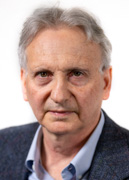David Loewenstein
419 Burrowes Building
Mailroom: 430 Burrowes Building
Mailroom: 430 Burrowes Building
Mailroom: 430 Burrowes Building

Office Hours
Not teaching in Spring 2026 since I am a resident scholar at the Penn State Humanities Institute this term; please contact me by email to arrange appointments.Education
Professional Bio
David Loewenstein is Edwin Erle Sparks Professor of English and the Humanities. His research and teaching interests include: early modern literature and culture from the Reformation to the Restoration; Milton and his contemporaries; English literature in relation to politics and religion; the relations between literature and history; the impact of ancient Greek culture on early modern literature; book history; Shakespeare; Renaissance intellectual and cultural history.
He has published widely on early modern English literature and culture. His recent work has addressed early modern English literature in relation to such topics as the construction of heresy, nationalism, and concepts of tyranny. Recent publications include: Representing Revolution in Milton and His Contemporaries: Religion, Politics, and Polemics in Radical Puritanism (Cambridge UP, 2001; winner of the James Holly Hanford Award from the Milton Society of America); Heresy, Literature, and Politics in Early Modern English Culture (co-editor; Cambridge UP, 2006); The Cambridge History of Early Modern English Literature (co-editor; Cambridge UP, 2002; paperback, 2006); Early Modern Nationalism and Milton's England (co-editor; U of Toronto P, 2008); The Complete Works of Gerrard Winstanley, 2 vols. (co-editor; Oxford UP, 2009); John Milton, Prose: Major Writings on Liberty, Politics, Religion, and Education (editor; Wiley-Blackwell, 2013); Treacherous Faith: The Specter of Heresy in Early Modern English Literature and Culture (Oxford UP, 2013; paperback edn., 2016); Shakespeare and Early Modern Religion (co-editor, Cambridge UP, 2015; paperback edn., 2018); co-editor (with Alison Shell) of Early Modern Literature and England's Long Reformation (Routledge, 2020), based on a special issue of the journal Reformation (2019); co-editor (with Paul Stevens) of The Cambridge Companion to Shakespeare and War (Cambridge UP, 2021). He has edited (with Thomas N. Corns) the new scholarly edition of Milton's Paradise Lost for the Oxford University Press edition of The Complete Works of John Milton; the edition is now in press and will be published in two large volumes in April 2026.
He has been awarded major fellowships by the John Simon Guggenheim Memorial Foundation, the National Endowment for the Humanities, the American Philosophical Society, and the Institute for Research in the Humanities at the University of Wisconsin-Madison (where he was a Senior Fellow and Helen C. White Professor of English and the Humanities). He has held year-long fellowships at the Folger and Newberry Libraries. He has also held Visiting Research Fellowships at Merton College and Lady Margaret Hall, University of Oxford, and at Churchill College, University of Cambridge. His books have twice won the James Holly Hanford Award of the Milton Society of America for Distinguished Book. He has also twice won the Milton's Society's Irene Samuel Memorial Award for editing a distinguished multiauthor collection of essays. In 2006 he was elected Honored Scholar of the Milton Society of America, its highest honor.
He delivered the Martin Ridge Lecture in Literature at the Huntington Library in 2017.
He is also working on two books: one is entitled Tyrannical Powers: Contesting Freedom and Tyranny in the Age of Milton, a study of how ideas of freedom and tyranny became the subject of fresh interpretation, intense debate, and representation in Milton's age; the other is a study entitled Sacred Violence in Early Modern English Literature: Spenser, Shakespeare, Milton.
Areas of Specialization
Book History and Textual Studies
With a special interest in early modern print culture.
Renaissance Literature
Early modern literature and culture from the Reformation to the Restoration; Milton and his contemporaries; literature in relation to politics and religion; book history and textual studies; Shakespeare; Renaissance intellectual history.